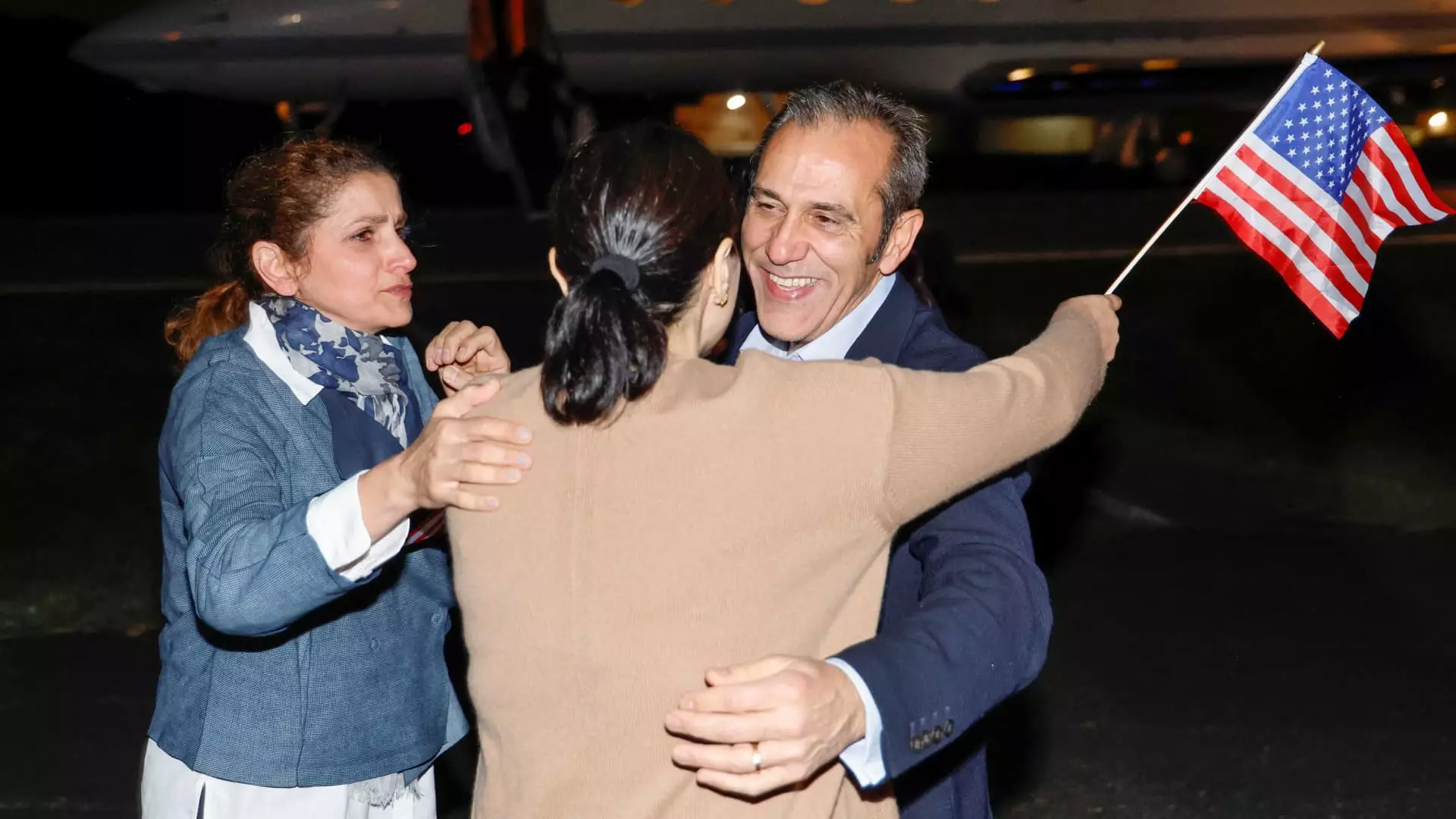Five Americans who endured years of wrongful imprisonment in Iran have finally returned to U.S. soil. The emotional homecoming took place at a military airfield near Washington, D.C. early Tuesday when a plane carrying the five Americans and two of their relatives landed. These Americans had been released as part of a historic prisoner exchange agreement brokered with the assistance of Qatar, which facilitated their safe transfer. This unprecedented deal allowed Tehran to access $6 billion in oil revenues that had been frozen under U.S. sanctions. In return, five Iranian nationals, who had been detained in the United States, were also set free.
Among the released prisoners, Siamak Namazi, 51, had the unfortunate distinction of enduring the longest period of wrongful imprisonment. He spent nearly eight agonizing years behind bars. In 2015, Namazi was arrested on espionage charges and swiftly convicted after a mere few hours of trial. Emad Shargi, 59, an Iranian-born businessman who had settled in the U.S. during his youth, faced a similarly harrowing experience. He was arrested in 2018, subsequently cleared of all charges in 2019, but had his passport confiscated by Iranian authorities. In 2020, Shargi was once again charged with espionage, this time without the semblance of a fair trial. Morad Tahbaz, 67, an Iranian-American with British citizenship, was part of a group of environmental activists conducting research on Iran’s endangered cheetah population. Arrested in 2018 and convicted of espionage in 2019, Tahbaz’s commitment to conservation led to his unjust incarceration. The two remaining former prisoners have wisely chosen to remain anonymous for their own safety, according to U.S. officials.
A Clash of Perspectives
Regarding the allegations of espionage against the prisoners, human rights groups have vehemently argued that Iran charged them without any substantiated evidence. Iran dismisses these claims and maintains that the detainees were treated in accordance with their legal system. With the backdrop of escalating tensions between the two nations, primarily over Iran’s uranium enrichment program and internal crackdowns on dissent, the timing of this prisoner exchange raises eyebrows.
This unprecedented prisoner swap occurred as President Joe Biden and Iranian President Ebrahim Raisi attended the annual United Nations General Assembly gathering in New York. Criticism from Republicans has been swift, as many argue that the deal symbolizes a “ransom” payment, which could potentially embolden Tehran to continue imprisoning foreign nationals. The Biden administration has repeatedly emphasized that the unfrozen funds can only be used by Iran for humanitarian purposes, such as medicine and food. However, President Raisi has explicitly stated that his administration will determine how the $6 billion will be spent, asserting that it will be allocated “wherever we need it.”
As the released prisoners adjust to their newfound freedom, a myriad of unanswered questions linger. How will this significant gesture impact the already strained relations between the United States and Iran? Will this deal serve as a catalyst for future negotiations or exacerbate existing conflicts? Moreover, what does this complex exchange mean for the American citizens who continue to face threats in Iran and other nations around the world? These uncertainties underscore the multifaceted nature of international diplomacy and the enduring challenges of protecting the rights and well-being of individuals caught in the crosshairs of geopolitical disputes.
The homecoming of the wrongfully imprisoned Americans from Iran signifies both triumph and tribulation. While their release brings relief and joy, the circumstances surrounding the prisoner exchange remain contentious. The delicate balance between justice, humanitarian efforts, and geopolitical considerations continues to shape the narratives of those affected by these complex negotiations. As the world watches, the true impact and consequences of this historic agreement between the United States and Iran will slowly unfold.


Leave a Reply